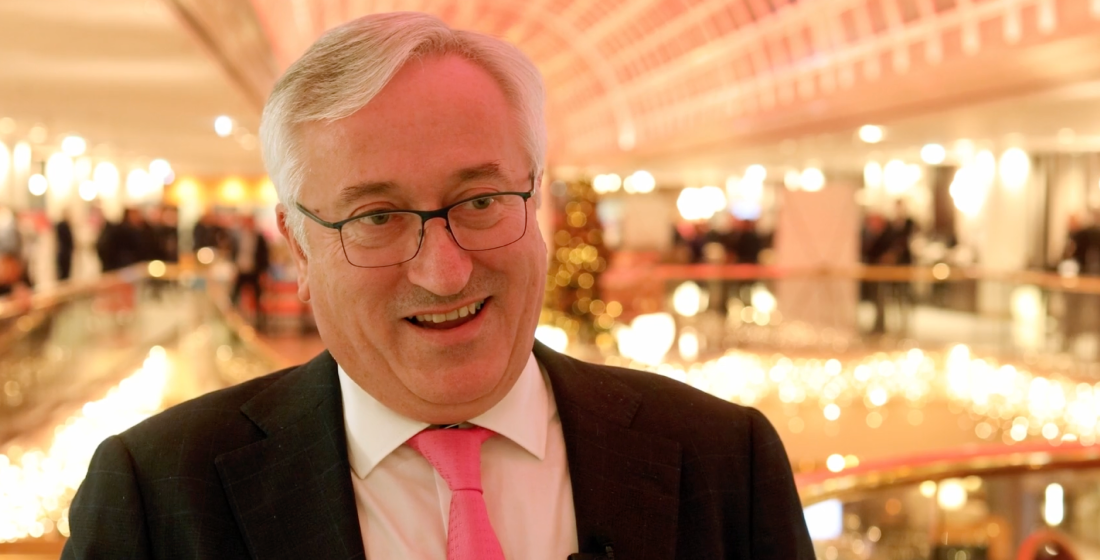Brighter skies gradually begin to appear for EU-UK trade relations
On 27 April the European Union (EU) ratified the Brexit trade agreement with the United Kingdom. Here, TXF speaks to Alan Farkas, partner at international law firm Dorsey & Whitney, about whether the ratification has set the EU on a path to granting the UK ‘equivalence’ and what the agreement might mean for the financial services sector.

TXF: How do you view the current trade relationship between the EU and the UK?
Alan Farkas (AF): The last few weeks have seen a general thawing of relations between the EU and UK which up until then could at best be described as being ‘prickly and distrusting’. This improvement in relations culminated last week in the EU formally signing off last year’s Brexit trade deal with the UK government. Whilst the EU’s delayed signature to the trade deal was never in doubt, it has been accompanied by other positive signs of the EU and UK putting aside some of the rhetoric and getting on, in this post-Covid era, with developing new structures to enable agreement on ways to expand existing arrangements on trade as well as services.
Following ratification of the trade agreement by the EU it will now be possible for the ‘Joint Partnership Council’ to meet with the intention of resolving disputes and working through potential new opportunities for trade flows between the EU and UK. This improvement in the relationship between the EU and UK can only be seen as a good sign and opening up the possibility of both sides moving to a deeper relationship based on stable structures.
TXF: On the trade front, we have seen an initial drop-off in trade between the UK and EU, but a real stumbling block has been the issue of trade between the Republic of Ireland and Northern Ireland. Do you foresee any change to this impasse in the near future?
AF: There is now talk of Brussels possibly accepting a more ‘pragmatic’ approach towards border checks on goods and produce passing between Britain and the Irish Republic. Following the resignation of Northern Ireland’s First Minister, Arlene Foster, there is an impetus from Dublin, Brussels and the UK government to see a reduction in the polarisation of politics in Northern Ireland, which has stemmed from these border checks and the UK government extending unilaterally the grace periods for adoption of stricter Irish border checks.
Lord Frost, the UK Brexit minister is in talks with the EU to find ways to resolve the challenges of the Northern Ireland Protocol. With the UK set against any move towards alignment of rules and regulations, a solution may have to be found based around a more liberal interpretation of the rules on how to conduct checks of goods and produce at the border. This may be part of a ‘new reality’ that the EU is prepared to accept under pressure from Dublin.
TXF: Has there also been any movement on the issue of better access within the EU for UK financial services companies/institutions which appear to have lost a great amount of freedom to operate in EU markets?
AF: Late March also saw the EU and UK agreeing the text of the memorandum of understanding (MoU) that creates a framework for voluntary regulatory cooperation on financial services. The MoU will establish a joint UK-EU Financial Regulatory Forum facilitating high-level discussions on financial services. It is hoped that by securing a common framework around certain financial services’ rules this could help unlock some ‘limited equivalence’ decisions thereby allowing UK firms access to the wider EU market. It is understood that the forum’s activities will include ‘informal discussions on decisions to adopt, suspend or withdraw equivalence’.
Whilst the MoU is a long way off from the pre-Brexit position of passporting rights, whereby UK financial services’ firms could operate freely within the EU member states whether that be in Frankfurt, Paris or Rome, the MoU can be seen as perhaps the first tentative steps towards ‘equivalence’ allowing UK based financial institutions EU wide access for so long as UK regulations stay roughly in line with those from Brussels. However, even if equivalence were to be granted to UK financial institutions at some point, under the current regime, the EU could unilaterally withdraw an equivalence decision at relatively short notice.
Whilst the EU have stated that they do not foresee any immediate moves to equivalence beyond that which is being currently granted in respect of derivatives clearing and securities settlement, national regulators in Luxembourg’s CSSF have issued temporary equivalence decisions to the UK to bridge the gap in relation to markets in financial instruments regulation (MiFIR) for services provided to Luxembourg eligible counterparties and professional clients without the need for the relevant UK financial institution to open up a branch office. Meanwhile, the Italian securities regulator Consob is allowing UK banks and investment firms to continue to operate while they seek authorisation to operate in Italy.
TXF: Are there any other positive developments that are taking place that could give us all hope that the EU and the UK can move forward positively for the greater good of business, trade and a mutually beneficial relationship?
AF: We have also recently seen the UK grant full diplomatic status to the EU’s ambassador in London, finally resolving a dispute that has strained relations between the two sides since Brexit. This has led to the European Council president, Charles Michel, to comment that the ratification would open a ‘new era’ of cooperation.
Indeed, as the mood amongst UK businesses brightens post Covid, and just like New York and Singapore have demonstrated that they can operate extremely successfully as ‘third countries’ for the mutual benefit of these financial centres as well as the EU, there is perhaps a growing realism in both London and Brussels that now is the time to put past political wrangling to one side and start to develop the structures for a long term relationship for financial services which can be of benefit to both London and EU member states.
*Alan Farkas is a London-based partner at the international law firm Dorsey & Whitney which specialises in advising companies about Brexit, mergers and acquisitions, banking, PE and the financial services industry.





